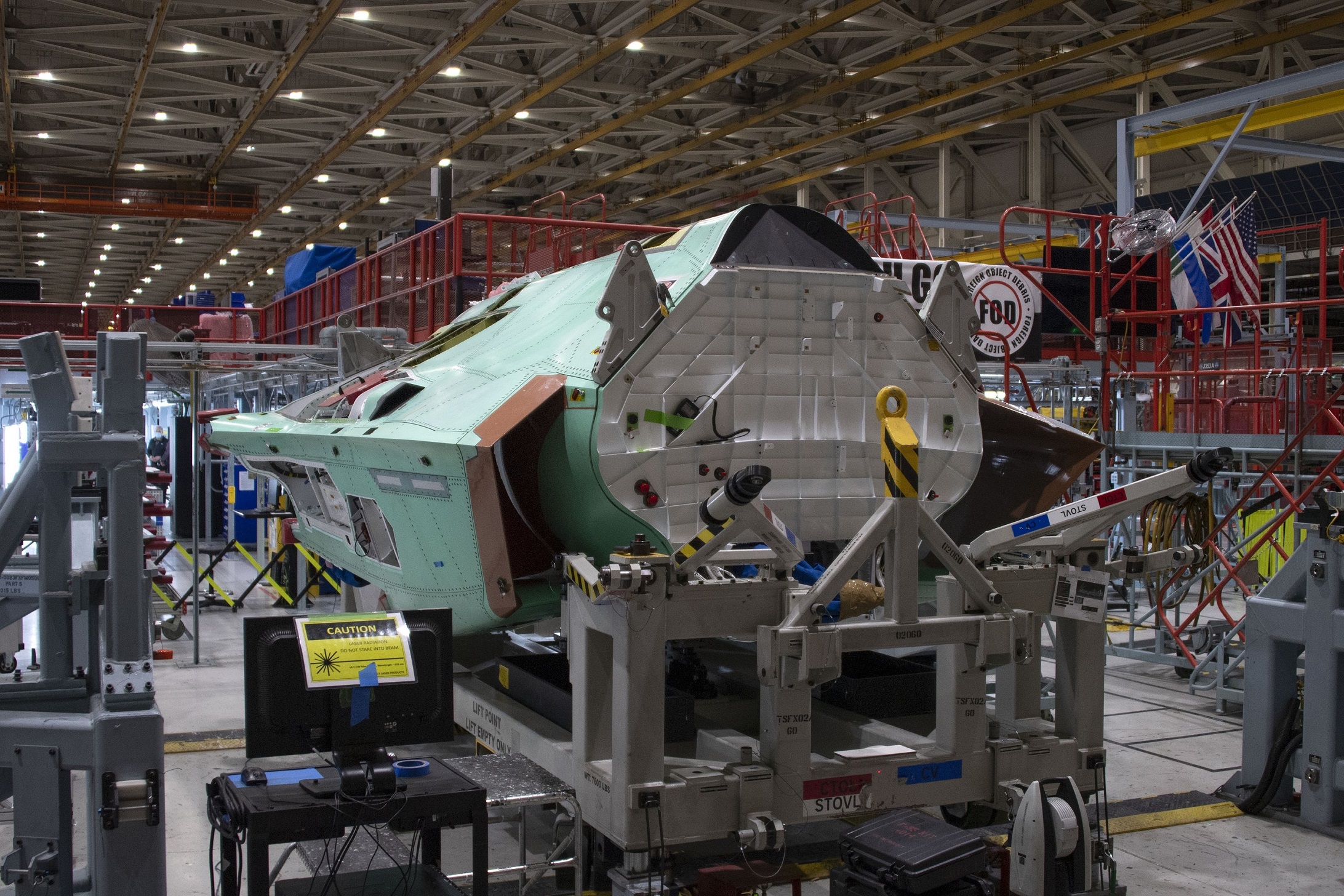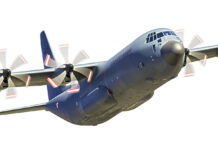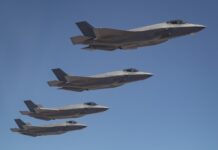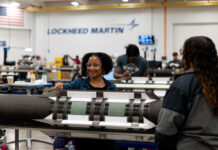US defence companies Lockheed Martin and Northrop Grumman have signed a letter of intent with Rheinmetall AG aimed at the German firm becoming a “strategic source of supply” for the construction of centre fuselage sections for Lockheed Martin’s F-35 fifth-generation fighter, according to a joint statement by the three companies on 17 February 2023.
If the stated intention is realised, the centre fuselage sections would be destined primarily for the F-35s that the United States exports to other countries, including a planned buy of 35 F-35s for the Luftwaffe. These aircraft, the purchase of which was formalised in December 2022, are due to enter German service in 2028.
The integrated assembly line for F-35 centre fuselage sections is a state-of-the-art capability developed by Northrop Grumman, according to Glenn Masukawa, vice president and F-35 programme manager at Northrop Grumman. The company is a major partner in the F-35 programme and not only manufactures the jet’s fuselage centre sections and wings, but is also responsible for the development, production and maintenance of sensor systems, avionics and training software.
Mike Shoemaker, Vice President of F-35 Customer Programs at Lockheed Martin, was stated in the press release as saying: “Production of the F-35 fuselage centre sections in Germany will be critical to meet the growing global demand for the F-35, which plays an important role in 21st century security.”
Armin Papperger, CEO of Rheinmetall AG, emphasised that the plan would contribute significantly to risk minimisation by integrating national partners into the F-35 production process. In addition, Papperger said he hopes the partnership with Lockheed Martin and his company’s close ties to the Bundeswehr will lead to a transfer of know-how to Germany.

(Photo: Northrop Grumman)
Well-informed sources say that, if a contract is signed, up to 400 fuselage components could be produced in Germany over a longer period of time.
Jens Lehmann, a Christian Democratic Union member of the Bundestag who sits on its Defence Committee, welcomed the possible involvement of Rheinmetall in the F-35 production process. “The fact that parts of this global fleet [will] now bear the seal ‘Made in Germany’ is a strong signal for the domestic [industry],” he said. He also pointed out that a quick decision on the location of the work was necessary for the rapid start of production. “The production hall together with administration buildings and storage facilities must be built as quickly as possible,” he said. “Speed through short approval procedures is the top priority here, so that important parts of the fifth-generation fighter aircraft are manufactured in Germany.”
Previously, there had been repeated reports of co-operation talks between Lockheed Martin and Airbus subsidiary Premium AEROTEC. Apparently, however, these were not successful, meaning that the contract could now go to Rheinmetall, which traditionally specialises in land systems.
After a long and protracted process the German government decided at the end of last year to acquire the F-35 to replace the Luftwaffe’s ageing Panavia Tornado fighter-bombers, including in the nuclear attack role. In December 2022 the Bundestag’s budget committee released funds in the amount of EUR 8.3 Bn to purchase 35 F-35s as well as associated training, spare parts and weapon packages. The German government’s decision thus joins those of many other European states that have also opted for the F-35.
Ole Henckel













